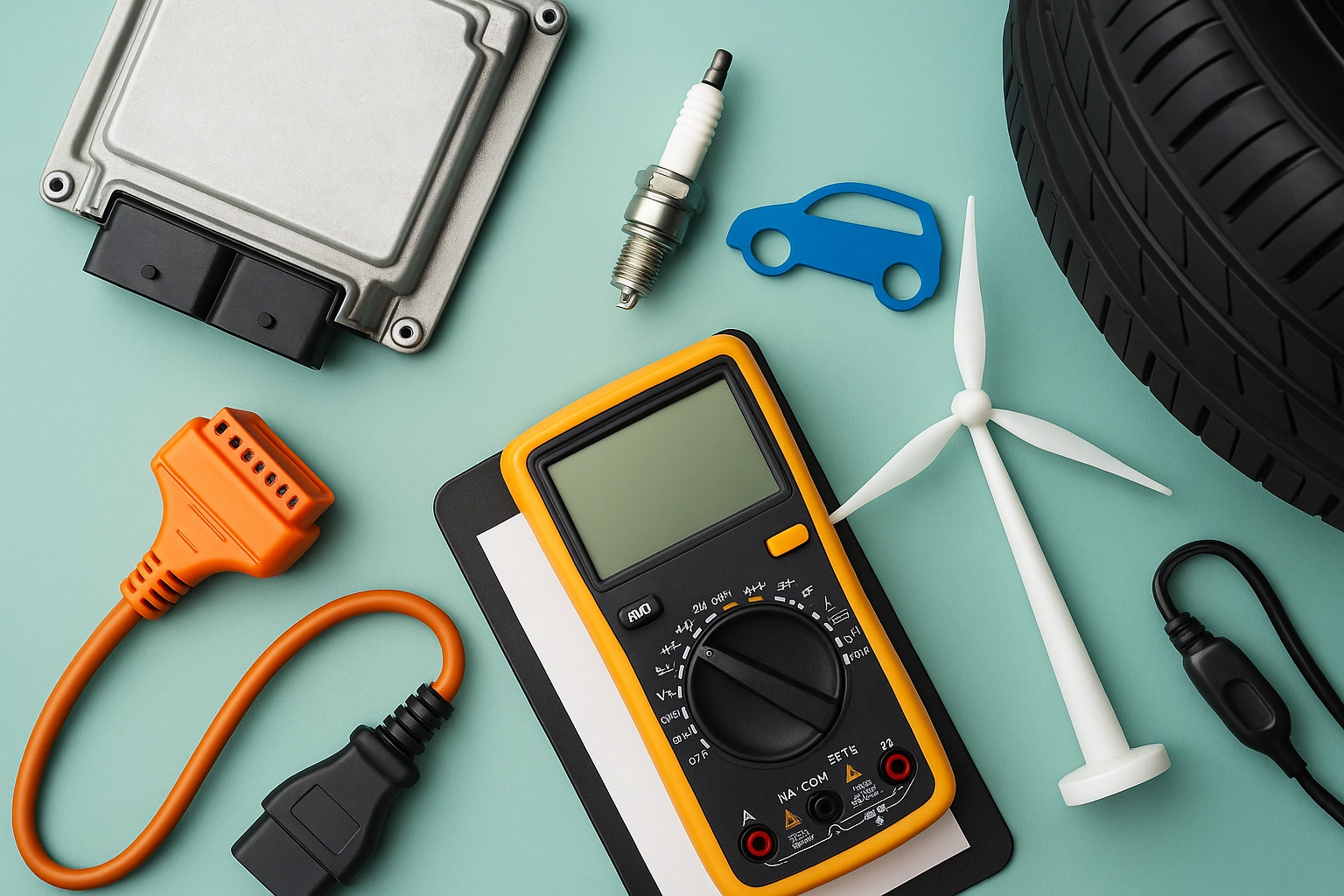SAE J2847 EV Charging System Interoperability Testing
The SAE J2847 standard is a critical framework in the automotive industry, particularly for electric and hybrid vehicles (EVs/HVs). This standard ensures that charging systems from different manufacturers can communicate effectively with one another. It aims to enhance interoperability and facilitate seamless charging experiences across various platforms.
The SAE J2847 defines protocols for communication between EVs and their chargers, ensuring compatibility in terms of power levels, communication signals, and safety features. This standard is essential as it helps eliminate the risk of incompatible systems leading to inefficiencies or potential hazards.
For quality managers and compliance officers, SAE J2847 testing ensures that products meet regulatory standards and market expectations. R&D engineers can leverage this testing to refine their designs for optimal performance. Procurement teams benefit from understanding the specifications required by this standard to source appropriate components.
The test setup typically involves an EV connected to a charger, both equipped with SAE J2847-compliant hardware and software. The charging process is monitored closely to ensure all communications are as specified by the standard. This includes verifying that the charging system can negotiate the best power level for the vehicle, exchange status updates during the charge, and handle any errors or interruptions gracefully.
Real-world applications of SAE J2847 testing include ensuring interoperability between different brands of EVs and their chargers. This is particularly important in public charging networks where users should not encounter compatibility issues regardless of brand preference. By adhering to the SAE J2847 standard, manufacturers can also ensure that their products are forward-compatible with future advancements in charging technology.
- Ensures seamless communication between different EVs and chargers
- Avoids potential inefficiencies or hazards due to incompatible systems
- Facilitates interoperability across various brands and platforms
- Supports public charging networks by maintaining consistent standards
Why It Matters
The SAE J2847 standard is pivotal in the evolution of electric vehicle technology. Interoperability among different EV models and chargers is essential for enhancing user experience, reducing operational costs, and promoting widespread adoption of electric vehicles.
Without such standards, there would be a significant risk of fragmented markets where each manufacturer would have to develop its own proprietary charging systems. This could lead to higher costs for consumers due to limited compatibility and the need for multiple chargers at home or in public spaces. SAE J2847 helps mitigate these issues by providing a universal framework that all stakeholders can adhere to.
From a regulatory standpoint, compliance with this standard ensures that vehicles meet safety and performance requirements set forth by governing bodies. This not only protects consumers but also fosters trust in the industry as a whole. As electric vehicles become more prevalent on roads worldwide, ensuring interoperability will be crucial for maintaining efficient and reliable charging infrastructure.
The broader implications of SAE J2847 extend beyond individual vehicles; they impact the entire ecosystem of electric mobility. By facilitating seamless integration between different components, this standard supports innovation in both vehicle design and charging technology. It encourages collaboration among manufacturers, suppliers, and service providers, ultimately driving down costs while improving overall quality.
Why Choose This Test
Selecting SAE J2847 EV Charging System Interoperability Testing offers numerous benefits for automotive companies looking to enhance their product offerings. Firstly, it ensures that your vehicles and chargers can communicate effectively with those from other manufacturers, thus enhancing the overall user experience.
Secondly, by adhering to this standard, you demonstrate commitment to quality and compliance, which is increasingly important in today’s competitive market. Consumers are more likely to trust brands that meet international standards like SAE J2847. This can translate into increased customer satisfaction and loyalty, potentially boosting sales.
Thirdly, choosing this test allows you to stay ahead of industry trends. As electric vehicles continue to grow in popularity, the importance of interoperability will only increase. By investing now in SAE J2847 testing, you position your company as a leader in sustainable transportation solutions. This can open up new market opportunities and partnerships.
Lastly, conducting rigorous SAE J2847 testing helps identify potential issues early in the development process, allowing for timely corrections before products reach the market. Early detection of problems ensures that your vehicles meet all necessary specifications right from the start, reducing post-launch modifications and associated costs.
Competitive Advantage and Market Impact
- Enhances user experience through seamless communication between EVs and chargers
- Demonstrates commitment to quality and compliance, increasing consumer trust
- Positions your company as a leader in sustainable transportation solutions
- Identifies potential issues early, ensuring products meet all necessary specifications
The market impact of SAE J2847 EV Charging System Interoperability Testing is substantial. By participating in this testing, you contribute to the broader goal of improving electric mobility across various sectors. This includes not only automotive but also infrastructure development and energy management systems.
As more countries adopt policies encouraging the use of renewable energies, interoperable charging solutions become increasingly important. Companies that excel in SAE J2847 testing are well-positioned to benefit from these trends by offering products that integrate seamlessly into evolving infrastructures. This not only strengthens their position within existing markets but also opens doors for expansion into new territories.
The standard’s role in promoting interoperability also fosters innovation. By ensuring compatibility among different brands and models, SAE J2847 encourages collaboration between competitors who share a common goal of advancing electric vehicle technology. This collaborative environment can lead to breakthroughs that improve not just individual products but the entire industry.





